
On the second day of Goafest 2013, Shiv Singh, global head (digital), Pepsi, spoke on ‘Why no one cares about marketing’ and presented five ideas which he feels are important in the current scenario.
First of his ideas was ‘Leave ads behind’. Expanding on this, he gave the example of a new video released by Pepsi featuring Beyonce. The brand launched a 61-second preview video on social media with the hash tag #BeyHereNow, in which Beyonce previewed her new song ‘Grown Woman’.
“It was not just an ad for Pepsi, but a new lens into Beyonce. The visuals and lyrics were anchored in the culture of her past and her future. It was the start of a deep creative collaboration. When we think of ads in the future, it should not be restricted to a 20-second film. It should make a strong impact and be a part of the culture,” he said.
His second idea was to ‘Think about experiences, not more ads’.
Singh said digital data should be used to drive new business insights. “The insights you get from social (media) impact how you understand cultures, consumers, brands and products, and how you can predict sales and measure engagement.”
Talking about the editorial team at Pepsi, Singh touched upon the importance of branded content as well as being able to understand the pulse of the audience on a real time basis. Citing the example of how Pepsi came up with a response to Coca-Cola’s Superbowl 2013 commercial within a couple of days, he added, “We have received more views for it on digital media than on television.”
The third idea was ‘Bet on Facebook’. Stressing that the social network was here to stay, he pointed out that mere number of likes a brand has on Facebook is meaningless. “Having a lot of likes is like having a large hall with empty chairs. It’s meaningless unless you have people sitting in these chairs,” he said, adding that it is more useful to have a smaller audience that engages.
“In today’s age, a relevant post on Facebook is as powerful as a 30-second television commercial. Moreover, reaching over 20 million relevant consumers at the same time is much more expensive on traditional media than through Facebook,” he said.
‘Develop a 365-day culture’ was his next big idea. “When the customer is listening 365 days, the brand should be there too”, said Singh. Stressing on the importance of real time insights, response, content studio, co-creation and distribution, Singh noted that Pepsi, through its association with Twitter, has a campaign where the brand shares music news and updates every week. “This helps the brand be an integral part of the culture, and the efforts have paid off. When people search for music related content on Google, the organic search results throw up Pepsi curated content on the first page itself, thus reducing the dependence (and ad spends) on Google.”
The final point that Singh stressed on was to ‘Capitalise on the India opportunity’. He voiced the opinion that there was a lot of potential in India, especially in the mobile space. He observed that marketers will need to increase their investments in mobile to as much as half of their digital marketing budgets in the next four years.
Singh said that advertising needs to look at new forms of creativity now. He surmised, “In this day and age, where the possibilities are limitless, as marketers and agency representatives, you should not look at increasing the marketing budgets but reducing it,” he surmised.


.jpg&h=334&w=500&q=100&v=20250320&c=1)
.jpg&h=334&w=500&q=100&v=20250320&c=1)

.jpg&h=334&w=500&q=100&v=20250320&c=1)


.jpg&h=334&w=500&q=100&v=20250320&c=1)


.jpg&h=334&w=500&q=100&v=20250320&c=1)
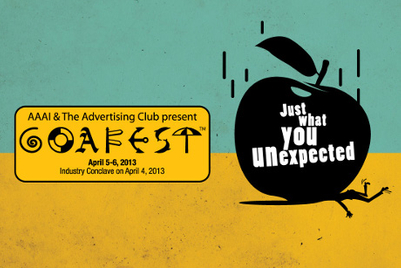
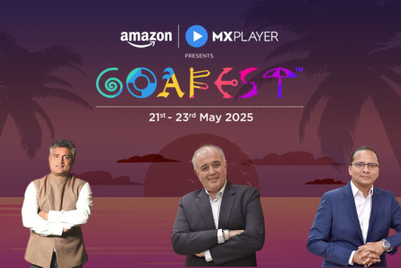
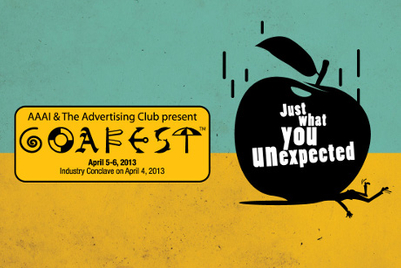
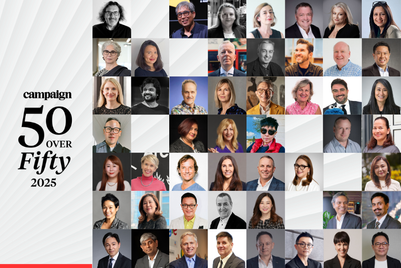
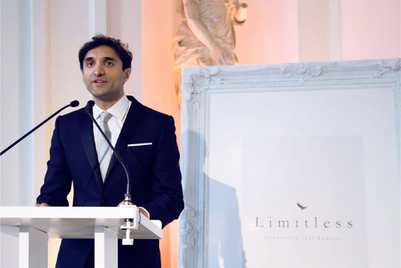
.jpg&h=268&w=401&q=100&v=20250320&c=1)
.jpg&h=268&w=401&q=100&v=20250320&c=1)
